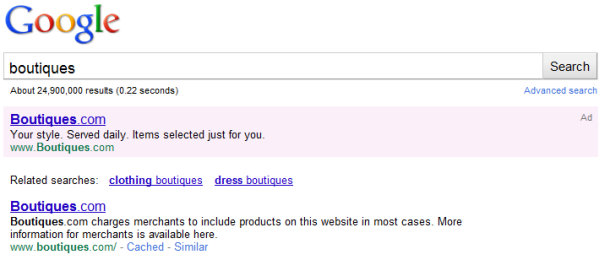
Is Google buying Groupon? For billions?
The rumor mill is going crazy. And it might be for 5 or 6 billion!
As a comparison, Yahoo! is worth about $21 billion, but that includes over $3 billion in cash AND equity investments in Yahoo! Japan + Alibaba that are likely worth close to $10 billion. In other words, Google might be offering to buy Groupon for 75% of the value of Yahoo! (excluding their cash on hands & foreign investments). $6 billion would be more than Google paid for DoubleClick and Youtube combined.
Groupon is a discount site that offers one major deal per day. Some are saying Groupon would be an unusual purchase for Google, as Groupon has no leading edge technology that Google is desperate to get their hands on. On the contrary, a Google employee could probably knock together a similar site in day or two.
Groupon offers something much more, however. Groupon offers something that has evaded Google, and every other search engine, for quite some time now.
Local.
Groupon has tentacles deep into local businesses advertising budgets, and on a massive scale. Groupon have a large sales force that hand-holds local businesses into online advertising, and reduces risk by offering win-win deals.
Contrast this with Google, who have found it difficult to get small businesses to spend up large on Adwords. The reality is that search marketing is just too cryptic and time consuming for a lot of small business operations.
Google has never really been able to do direct sales well at all," Ambrose said, citing Google's failed attempt to sell and market the Nexus One smartphone on its own site. And, he added, Google's revolutionary AdWords product is not intuitive for many of the small-town businesses that have caught the Groupon fever. "AdWords for a local business is really, really hard," Ambrose said and pointed out the number of AdWords "experts" and consultants offering their services to brick-and-mortar businesses
At the time of writing, nothing official has been announced, however.
Regardless if Google buys Groupon or not, Google's on-going march into non-traditional content arenas is unmistakable. There used to be a separation between search and state - heh - but there isn't anymore.
Google's recent moves should be a wake-up call to anyone involved in the following areas:
1. Coupons
If a company like Google combines coupon offers with local search data, they make local search a lot more enticing. Given Google Place-driven search results are already pushing other local results down the fold, expect to see the same thing happen in coupon searches, too, especially if the Groupon sale goes ahead.
Google also has a voucher program in beta.
2. Local Search
"A new kind of local search result that organizes the world’s information around places", says Google.
One could argue local directories already do this, although Google goes one better and orients around maps. Again, this pushes a lot of locality aimed SEO below the fold.
The hook into mobile applications is obvious, especially with Google owning Android.
3. Thin Affiliate
Google launches Boutiques.com and there's no Google logo to be seen anywhere! There's nothing "Google-y" about it.
There is a tiny link at the bottom of the About Us pages which states:
"Boutiques.com charges merchants to include products on this website in most cases"
Retailers sign up directly, and Google gets rid of various middlemen in the process. Fashion is a fairly innocuous place to start. It looks like a test run, but expect Google to roll out a lot more vertical "affiliate/paid inclusion" sites, especially if Boutiques.com does well. It is not hard to do well when your public relations blitz means you rank in a day. And you can sell yourself free ads!

Common Themes
There are a few common themes in evidence here.
Google is making it easier for the small LOCAL retailer to get into search marketing by providing more options. There is a much greater degree of hand holding evident, especially if you compare this approach with the alternative up until now, which is building a site and then promoting it with SEO or PPC.
(By comparison, small ONLINE retailers which are not local are being thrown under the bus by things like Google Product Ads which promote the largest retailers and are priced on a CPA basis to maximize yield. Most small businesses can't match Wal-Mart when it comes to leverage over the supply chain!)
I suspect Google have learned a thing or two from Facebook i.e. you've got to make it click-and-point easy. The network effects take care of everything else, and Google will largely control those. For the rest, there may be a great deal more hand-holding. Increasingly, vendors will want to be part of the Google platform.
Is it all doom and gloom for SEO?
No.
Google can't own everything. It may be able to provide scalable tools and platforms, but it can't become a publishing house that covers every topic and every industry. The long tail of search is, well.....long.
SEOs need to stay away from competing directly with Google. Instead, they need to provide value that Google can't provide easily, but will still need to display in order to be considered useful i.e. deep content, relationships, customer service, community, and unique-ness.
And let's not even get started on this or that.....


